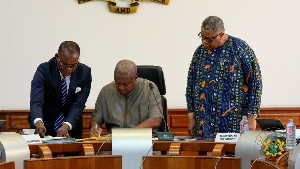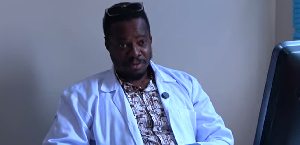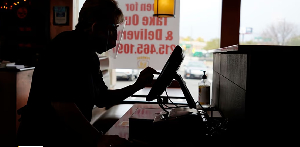His position was a strategic one that wielded a lot of power. As the Director of Recruitment (Overseas), the Ghanaian, known as M. A. Ribeiro was tasked with hiring and approving applications of foreign nationals who wanted to work in Ghana.
At the time, somewhere in September 1958, Ghana as a newly independent country that gained its freedom from colonial rule in 1957 was still developing, with quite a number of underdeveloped conditions.
There was a shortage of experienced manpower in some fields including the technical and business fields and there arose a need to recruit staff from other European countries to fill in the gap temporarily where Ghanaians could not.
As such, Mr. Ribeiro, who was a former senior history master at Achimota school, and former Liaison officer for Gold Coast students in the U.K. appointed in March 1952, was given the task of hiring these persons.
From the Ghana Commissioner’s Office in London where he operated, he worked on applications and interviews, recruiting people from all over the world, especially from Britain and Western Europe.
In a Daily Graphic publication dated September 5, 1958, J. G. Amamoo, a journalist who interviewed him indicated that Mr. Rebeiro had been recruiting prospective civil servants from the universities, military, and the British civil service.
Mr. Rebeiro would put advertisements in all national newspapers in Britain after receiving a list of vacant posts and offices from the Public Service Commission in Accra – Ghana.
These positions will also come with the required qualifications for each.
As quoted in the publication;
“About six weeks after the appearance of the advertisement, applications begin to come in. Next, he sorts these applications out and those who appear qualified are called for interview by a panel which usually consists of himself and advisers from either the Colonial Office of the appropriate industry connected with the officer under review.”
After this, he sends back a report on the qualified candidates and the Public Service Commission in Accra makes the final appointment.
A cablegram is sent to him and he then informs the successful candidates.
He however also indicated that regardless of the recruitment of expatriates and foreigners, Ghanaian citizens who qualified and were available for the various positions were also fully considered.
Mr. Ribeiro was recruiting personnel including railway engineers, broadcasting engineers, medical specialists, pathologists and experts, education officers, doctors and teachers.
He however admitted that recruitment wasn’t very easy because British persons with such qualifications were difficult to come by in some of the fields, particularly because Nigeria was also recruiting at the same time and their offers were more tempting.
Here's a snipe of the publication in the Daily Graphic in 1958:

WA
General News of Saturday, 29 April 2023
Source: www.ghanaweb.com













